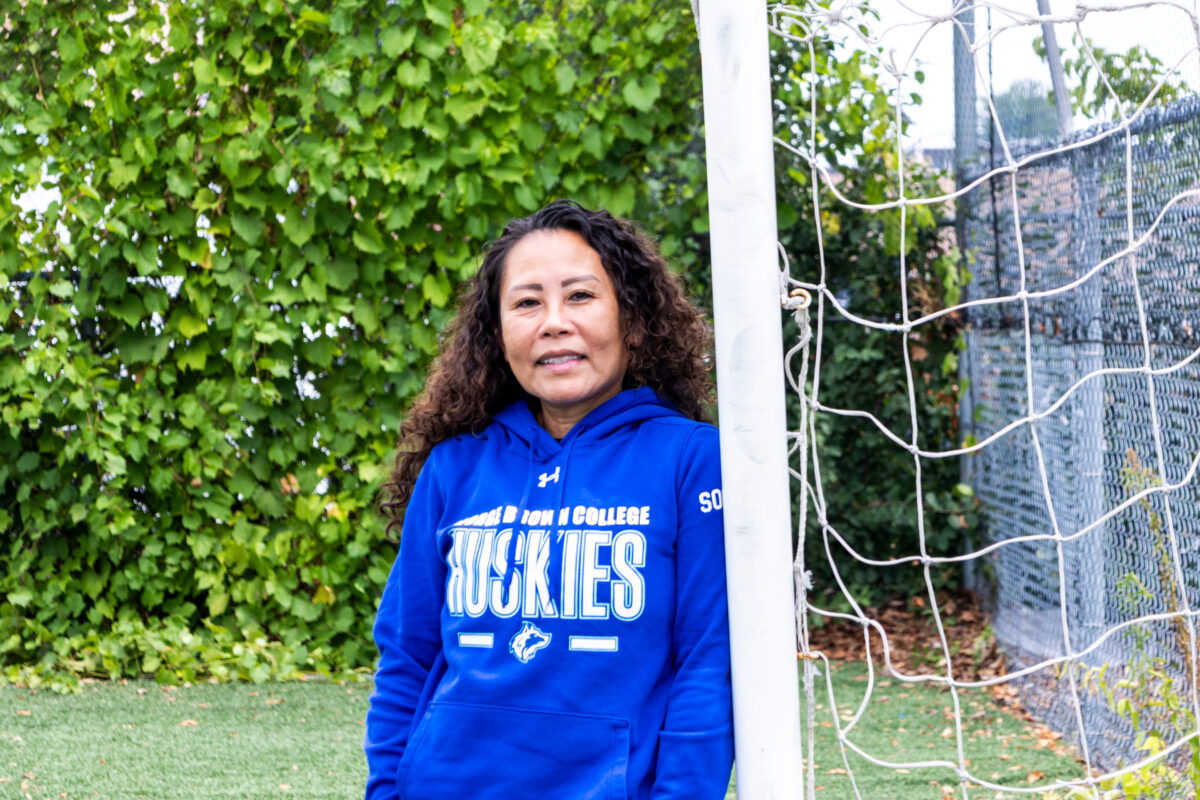Coaching at college level requires long hours, player recruitment and dealing with turnover
They don’t perform under the bright lights and on the big stage like their counterparts in the pro or US-college sports world, but, don’t be fooled.
The stakes are significant for the men and women who take on the job of being a coach in Canadian college sports. And the stakes are the same for the schools that hire them and the athletes that they lead.
What makes a successful college coach? From talking with numerous coaches, one word kept coming up – commitment. As George Brown College (GBC) men’s volleyball head coach Garrett May explained, setting an example is key to getting buy-in from the players.
“As a coach, you got to make sure that your team sees you prioritizing their group and making sure that you show that it’s important to you,” said May, who is GBC’s youngest coach. “So, if a coach is missing a bunch of practices because he’s got a bunch of other things going on, well, it’s like, are you really that committed to us?”

Future success often means lots of preparation and planning. Daphne Choi, who is coming off her first season in charge of the women’s volleyball team, believes, “a lot of the best coaches, they’ve built a culture from really early on,” and established what their teams are supposed to be by defining their goals in the beginning.
From a player’s perspective, a coach’s ability to unify the team is important. Getting everybody on the same page can be as simple as demanding accountability from each and every member of the group.
“Whether it’s the best player, if he’s not jogging back or if he’s not doing something to his full potential, or whether it’s the worst player not doing things to his full potential, (it’s important) to be held accountable for everything that they do,” said Teshayn Gayle, a guard with the Huskies men’s basketball team. “I think once you do that, it shows that everybody’s on the same level, everybody’s one. If the coach can do that and make even the best player held accountable, that’s the best thing.”
There is a bigger picture to consider than X’s and O’s or wins and losses. GBC men’s basketball head coach, Jonathan Smith believes the impact a coach has on the students themselves can’t be overlooked as some players spend more time with coaches than their professors.
“For me, it’s investing in the athletes as people, not just basketball players, investing in their lives,” said Smith, GBC’s longest serving head coach, after six seasons. “The daily interaction, caring about them as human beings, not just athletes.”

A critical part of any coach’s ability to excel in the collegiate ranks lies in recruitment. With college, there can be a very high rate of turnover as many student-athletes are with the program for only two or three years. For the people in charge of hiring these college coaches, recruitment does loom large.
Melanie Gerin-Lajoie, GBC’s manager of athletics and recreation, believes a solid coach “has recruiting at the forefront of their mind” and that it is vital in maintaining sustainability in their programs.
Competing with other schools for players and selling your school is always a challenge. However, with an influx of players coming and going in college, there can be some benefits. Whereas a university program may have more time to take a developmental path, the college game can be more about winning now.
“Whatever you got has to be good enough,” said May, who was named the Ontario Colleges Athletic Association (OCAA) men’s volleyball coach of the year this past season. “Let’s try to find a way to make it work which often makes for some pretty exciting lineups and changes.”
At George Brown, the Huskies program has been well-represented in 2017-18, with recognition given to a pair of coaches. Along with May, badminton’s Will Schram also earned OCAA coach of the year honours.
On the topic of best advice for somebody considering jumping into a college coaching role, perhaps Choi said it best.
“Assess whether or not you’re willing and able to do it and give it 100 per cent all the time. And if you’re not, then it’s a better choice to probably give that position to someone else.”


